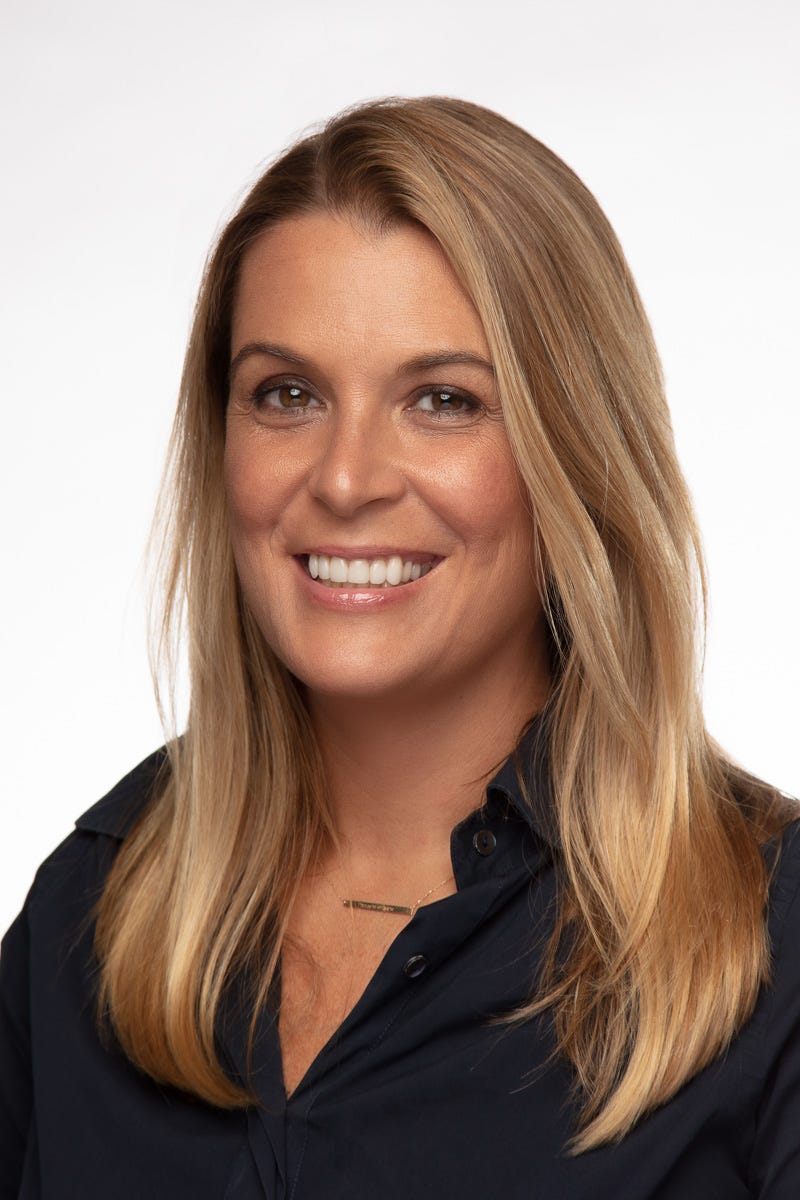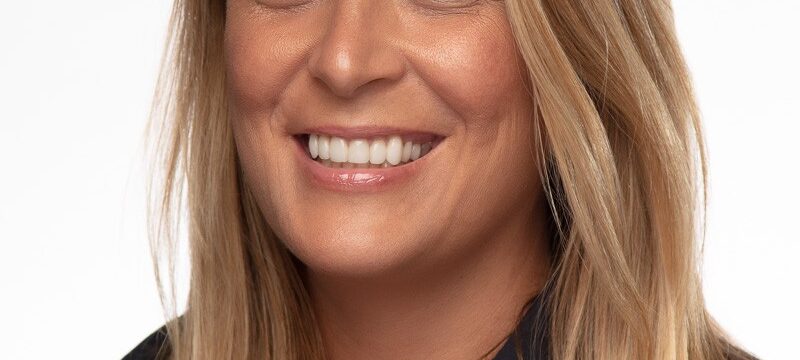
Acknowledge and talk about the issue. Since global health disparities are not something that we see daily, we need to remind ourselves that this concern is a daily reality to billions of people around the world. (Most can’t call up the doctor to make a same-day appointment when ill or hurt.) Because we don’t witness it doesn’t mean the problem doesn’t exist or doesn’t need to be addressed.
As part of my series about “individuals and organizations making an important social impact”, I had the pleasure of interviewing Dr. Danielle Sweeney.
Dr. Danielle Sweeney is a board-certified pediatric urologist and Executive Director of IVUmed, a non-profit improving the lives of adults and children in medically underserved countries by providing surgical training to local doctors. Dr. Sweeney was in private clinical practice for many years before she joined IVUmed full-time to be part of the life-changing work to provide quality urological care worldwide in abiding by its motto, “teach one, reach many.”
Thank you so much for joining us in this interview series! Can you tell us a story about what brought you to this specific career path?
I have dreamed of being a doctor since I was 13 years old and was driven since that time to achieve that aim. That I was the first female resident in over a decade at my six-year urologic surgery residency didn’t dissuade me. Medicine always has been my passion. Yet, ten years into my clinical surgery practice, I burned out. I felt that I was failing myself and my family. But being a doctor had been part of my identity for three decades and I struggled to find direction. At the suggestion of a friend, I re-engaged with IVUmed, an Austin, TX-based non-profit that provides surgical training to local doctors in medically underserved countries, and joined a surgical teaching workshop to Uganda.
I was re-invigorated. I learned that in places like Uganda there were just 10 urologists and no pediatric urologists for 30 million people. Parents came to us with their babies in their hands, having lost nearly all hope that their child’s condition would improve. We were able to successfully treat their children and teach local doctors how to continue these patients’ medical care.
I went on more of these trips. In fact, I was in Rwanda when the pandemic struck in March 2020. Afterward, I and several other medical volunteers attempted a complicated array of “trains, planes, and automobiles” to get back home. Still, the trip was worth it.
Soon after, IVUmed asked if I would help guide the organization as Interim Executive Director and then Executive Director. It was an exciting opportunity, one where I could continue my love of medicine in a very meaningful way.
Can you share the most interesting story that happened to you since you began leading your company or organization?
I was Executive Director in August 2020, the point in the pandemic where we knew onsite training in partner countries in Africa, South America, and Asia would not be possible in the foreseeable future. But the pandemic did not put an end to global health issues. We had to find new ways to train local doctors that didn’t require traveling.
Virtual surgical training was an idea that hadn’t yet gotten off the ground and, like most other industries, we knew we had to get online and try it. I’m so proud to report that in two years, IVUmed has provided 89 virtual lectures and trained 1740 health care providers in 40+ countries. Each trained clinician has the potential to continue providing medical care to thousands of children and adults in need.
Can you share a story about the funniest mistake you made when you were first starting? Can you tell us what lesson you learned from that?
Before cell phones and GPS maps, I was assigned to drive our Visiting Professor from his hotel to a restaurant where we were having a welcome reception for him. I was just a resident at the time, and he was a very respected and intimidating leader in Urology. I, of course, was super nervous just having him in my car and was worried that I would get in a wreck or pulled over. That didn’t happen, but I did get very lost trying to find the restaurant. Even though we arrived very late, he was quite gracious about the whole thing and even joked to me about it. I have always respected him for how he handled that situation. He could have yelled or been rude, but he wasn’t. It made me realize that we are all human, and even if you are in a position of power, to not forget that we all make mistakes and should always treat others with respect.
Can you describe how you or your organization is making a significant social impact?
Access to surgical care is a massive global problem impacting 5 billion people — and urologic surgery is one of the hardest surgeries to find. Conditions such as incontinence, kidney stones, and prostate cancer as well as malformations of the reproductive and urinary tracts, one of the most common birth defects among children worldwide, are easily treated or repaired in the U.S. But doctors in medically underserved countries don’t have this specialized training or resources to help people in their own communities. Our philosophy is to teach one, reach many — that is, train local doctors to treat and care for adults and children in their own communities.
Can you tell us a story about a particular individual who was impacted or helped by your cause?
On one of my trips to Uganda, we treated a young male infant with a condition called Posterior Urethral Valves (PUV). If left untreated, this condition will lead to renal failure and death in most low surgical resource areas because kidney dialysis and kidney transplantation are unavailable there. Treating PUV requires a specialized scope that, unfortunately, is very expensive and out of reach for many healthcare providers. We were able to have a scope donated to our organization; then, we were able to teach local physicians how to use it and treat PUV. During that procedure, I realized that, without the generous support of our volunteers and partners, this child never would have lived to see his 5th birthday. What a gift to be able to tell a family that their child will live and thrive.
Are there three things the community/society/politicians can do to help you address the root of the problem you are trying to solve?
1. Support expansion of specialized healthcare around the globe. In most third-world countries, conditions like prostate cancer or pediatric anomalies are death sentences. So many of these conditions are treatable with the right training and support.
2. Invest in sustainable programs. IVUmed was created 25 years ago with the vision of creating an equitable and sustainable model of care to support communities for the long term. By training local doctors, we are giving them tools and knowledge to treat adults and kids in their communities after we leave.
3. Acknowledge and talk about the issue. Since global health disparities are not something that we see daily, we need to remind ourselves that this concern is a daily reality to billions of people around the world. (Most can’t call up the doctor to make a same-day appointment when ill or hurt.) Because we don’t witness it doesn’t mean the problem doesn’t exist or doesn’t need to be addressed.
How do you define “Leadership”? Can you explain what you mean or give an example?
I’ve always felt that great leaders help others step up, that they inspire people to dream more and do more. In our own way, IVUmed is leading the way by giving skills and resources to local doctors to become the medical leaders that they want to be.
What are your “5 things I wish someone told me when I first started” and why. Please share a story or example for each.
- There is no master plan. Be flexible. It’s OK to sometimes deviate off the usual path.
- Don’t beat yourself up about perceived failures. View them as important life lessons.
- Things do get better with time. It might sound cliché, but it’s really true.
- Never, ever give up vacation time to work more. You need this rest and recharge. You will be better for it, I promise. Work will always be there when you return.
- Learn to set and respect your boundaries. It’s OK to say ‘no’ sometimes. Saying ‘yes’ too much just leaves you overextended and unable to give your best.
You are a person of enormous influence. If you could inspire a movement that would bring the most amount of good to the most amount of people, what would that be? You never know what your idea can trigger.
I would find ways for more U.S. doctors to have the time and capacity to share their expertise with doctors in medically underserved countries. U.S. doctors more than ever are suffering severe burnout. Sustainable medical outreach programs like IVUmed can help re-invigorate them. It’s the type of medicine doctors went into practice to do and is the reason that, 25 years later, IVUmed still is thriving.
Can you please give us your favorite “Life Lesson Quote”? Can you share how that was relevant to you in your life?
Life is what happens after you make your plans — John Lennon I’ve always liked this quote because it speaks to me as a Type A logistics control freak. (I have to regularly remind myself that I am not always in control. It’s also relevant to me, someone who had my whole career planned out at age 13. Things don’t always end up like you think and that’s OK.
Is there a person in the world, or in the US with whom you would like to have a private breakfast or lunch with, and why? He or she might just see this, especially if we tag them.
Diane Sawyer. I grew up watching 60 Minutes and the nightly news with my parents in the 1980s. In the pre-internet, 24-hour news cycle world, this is how you connected with global and current events. I credit my love of news and international journalism with giving me the impetus to explore the world and connect with people from other countries. The fact that Diane Sawyer was often the only woman in the room was never lost on me, even as a child. For someone like me who entered a male-dominated career, she was such an inspiration. She demonstrated that women can do hard things and thrive and achieve in worlds that aren’t always open to them.
How can our readers follow you on social media?
Facebook: https://www.facebook.com/IVUmed/
Twitter: https://twitter.com/IVUmed
LinkedIn: https://www.linkedin.com/company/ivumed/about/
This was very meaningful, thank you so much. We wish you only continued success on your great work!
Social Impact Heroes: Why & How Dr Danielle Sweeney of IVUmed Is Helping To Change Our World was originally published in Authority Magazine on Medium, where people are continuing the conversation by highlighting and responding to this story.

